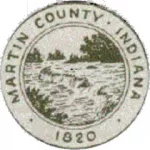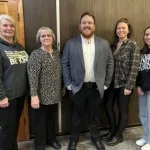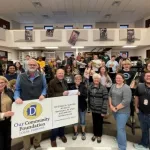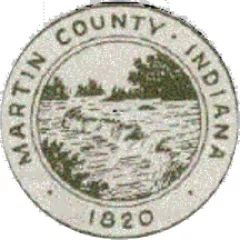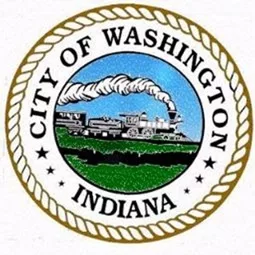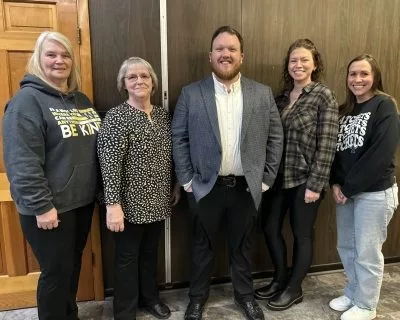
Terre Haute Cataract surgery moves to the next level at Daviess Community Hospital in Washington with Dropless and Less-Drops Cataract Surgery offered by ophthalmologist and cataract surgeon W. Satar M.D.
Dropless cataract surgery involves a medication placed into the eye after the intraocular lens implant is in place during cataract surgery. “Placing medications in the eye at the conclusion of cataract surgery eliminates post-operative eye drops use in about 80 percent of patients,” Dr. Satar reported. “I believe putting antibiotics and steroids directly into the eye is better and more effective than using eye drops, because it places the medicine in the best location in the eye, where it works more effectively,” he explained.
This relatively new approach eliminates out-of-pocket costs of eye drops. “Our senior population is suffering with the cost of generic medications going through the roof,” Satar observed.The procedure also eliminates compliance issues of using eye drops after surgery for two to three weeks. “From this prospective, it has a great value,” Dr. Satar stated. “I use this technique at other hospitals in the region. The patients loved it and have been extremely satisfied,” he said.
For patients whoare allergic to the dropless cataract surgery medication, the Less-Drops can be used. This solution includes a combination of three medications in one bottle which are administered by the patient. This option increases compliance and it is less costly to the patient.
What is a cataract? A cataract is a clouding of the lens in the eye that affects vision. Most cataracts are related to aging. Cataracts are very common in older people. By age 80, more than half of all Americans either have a cataract or have had cataract surgery. A cataract can occur in either or both eyes. It cannot spread from one eye to the other.
The most common symptoms of a cataract are:
- Cloudy or blurry vision.
- Colors seem faded.
- Headlights, lamps, or sunlight may appear too bright. A halo may appear around lights.
- Poor night vision.
- Double vision or multiple images in one eye. (Shadows).
- Frequent prescription changes in your eyeglasses or contact lenses.
- You think your glasses are dirty and often try to clean them.
These symptoms also can be a sign of other eye problems so it is important to consult with an eye care professional.
“I had the surgery done on both of my eyes,” said patient Darlene Sartore.“I had helped with drops for other people…it was challenging and time-consuming.The decision to have the direct injection made it very easy. Anyone who’s going to have cataract surgery, I’d definitely say they should go that method. It’s much easier and I didn’t have any complication from it.”
Dr. Wagih Satar is an ophthalmologist in southern Indiana and is affiliated with multiple hospitals in the area, including Eye Care Surgery Center in Evansville, Union Hospital in Terre Hauteand Gibson General Hospital in Princeton. He received his medical degree from Cairo University School of Medicine and has been in practice for several years.
Committed to staying on the cutting-edge of the latest advancements in ophthalmology. Dr. Satar maintains memberships with several prestigious organizations, including the American Academy of Ophthalmology and the American Society of Cataract and Refractive Surgery. He has hospital affiliations with a number of hospitals in Indiana and Illinois as well as Ambulatory surgery centers, which allows him to perform surgery locally for the convenience of his patients.As a seasoned eye surgeon, he has refined his skills over the years and made cataract surgery his specialty. Dr. Satar has performed thousands of successful cataract and laser surgeries in his career.
Dr. Satar will begin seeing patients and performing procedures on May 7, 2018 at the DCH Specialty Clinic at Daviess Community Hospital. To learn more about Dr Satar and his services please go to www.indianaeyecenter.net . To schedule an appointment, please contact his office at 1-800-252-1067.





